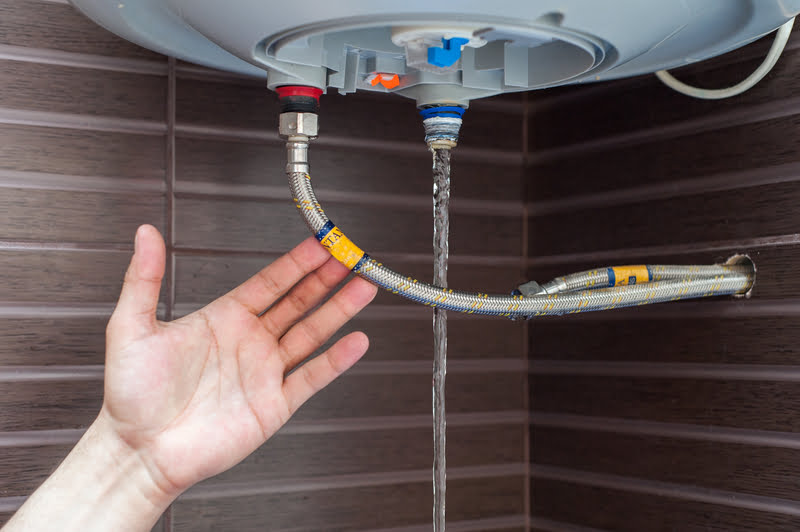Handling the Typical Water Heater Crisis Scenarios
Handling the Typical Water Heater Crisis Scenarios
Blog Article
Listed here down the page you will find lots of excellent content related to Common Hot Water Heater Problems.

A hot water heater is among the most vital fundamental appliances that can be located in a home. With hot water heater, you don't require to go through the stress and anxiety of heating water by hand each time there is a demand to take a bath, do the laundry, or the recipes. There is always a possibility that your water heating unit would act up as with a lot of mechanical tools.
It is important to note any little malfunction as well as tackle it swiftly before things get out of hand. Many times, your water heater starts to malfunction when there is an accumulation of debris as a result of constant use. As a safety measure, periodic flushing of your water heater is advised to avoid debris buildup and stop useful failure.
Typical water heater emergencies and also exactly how to manage them
Leaky hot water heater tank.
In this circumstance, you ought to transform off your water heating unit, permit it to cool down, as well as carefully look for the resource of the problem. At times, all you need to do is to tighten up a few screws or pipeline links in cases of small leakages. If this doesn't work and also the leakage persists, you may require to employ the solutions of a technician for a suitable replacement.
Rising and fall water temperature level.
Your water heater could start creating water of different temperature levels normally ice cool or hot warm. In this situation, the first thing you do is to make sure that the temperature is set to the desired level. If after doing this, the water temperature level maintains transforming throughout showers or other activities, you could have a damaged thermostat. There may be a requirement to replace either the thermostat or the home heating unit of your water heater.
Too little warm water
It may be that the water heating system can't sustain the hot water need for your home. You might upgrade your water heating unit to one with a bigger capacity.
Tarnished or stinky water
When this occurs, you need to know if the issue is from the water or the tank resource. If there is no amusing odor when you run cool water, then you are particular that it is your water heating system that is malfunctioning. The smelly water can be created by rust or the build-up of germs or debris in the water heating unit container.
Verdict
Some homeowners ignore little caution and also minor faults in their hot water heater device. This just causes additional damage and a feasible total malfunction of your appliance. You should manage your hot water heater faults as quickly as they come up to avoid even more expenses and also unnecessary emergency troubles.
With water heating units, you don't require to go through the anxiety of heating water manually every time there is a demand to take a bath, do the washing, or the dishes. Your water heating unit can start creating water of various temperature levels typically ice cool or scalding warm. It may be that the water heater can not sustain the hot water demand for your apartment or condo. If there is no amusing scent when you run cold water, then you are certain that it is your water heater that is defective. The smelly water can be triggered by rust or the build-up of germs or sediments in the water heater tank.
Common Water Heater Issues and What You Should Do
What Type of Water Heater Do You Have?
Before we begin it’s first important that you identify the type of water heater you have on your property. There are two main types of water heaters out there: conventional and high efficiency.
Both of these types of products typically use either gas or electricity to heat power. There are also solar water heaters that use a thermal collector on the roof or yard to heat the water.
While these models are not as common, they can cut heating costs in half. In this article, we will focus on conventional and high efficiency.
How Do My Electric and Gas Water Heater Work?
Though they look similar, electric and gas water heaters work very differently. It’s important to know their basic function because often problems can be specific to the heating source.
In the electric model, a thermostat on the side of the machine detects the temperature of the water in the tank. When the temperature needs to rise electricity flows to a heating element suspended in the water.
Gas models also use a thermostat device — typically with a mercury sensor at the tip and an additional sensor called a thermocouple. The thermocouple detects whether the pilot light is on and controls the flow of gas.
When the thermostat drops below the appropriate level gas is released which becomes ignited by the pilot light. The flame heats the bottom of the water tank which causes hot water to rise and cold water to drop.
This natural circulation continues until the water reaches the desired temperature. Then, the thermostat triggers the gas control valve to shut off the flow of gas.
What Are the Most Common Issues and How Do You Fix Them?
https://happyhiller.com/blog/common-water-heater-issues-and-what-you-should-do/

I discovered that post about Is Your Water Heater Leaking? while doing a lookup on the internet. In case you appreciated our article if you please make sure you remember to pass it around. Thanks a bunch for your time. Visit again soon.
Secure timely emergency plumbing assistance. Report this page